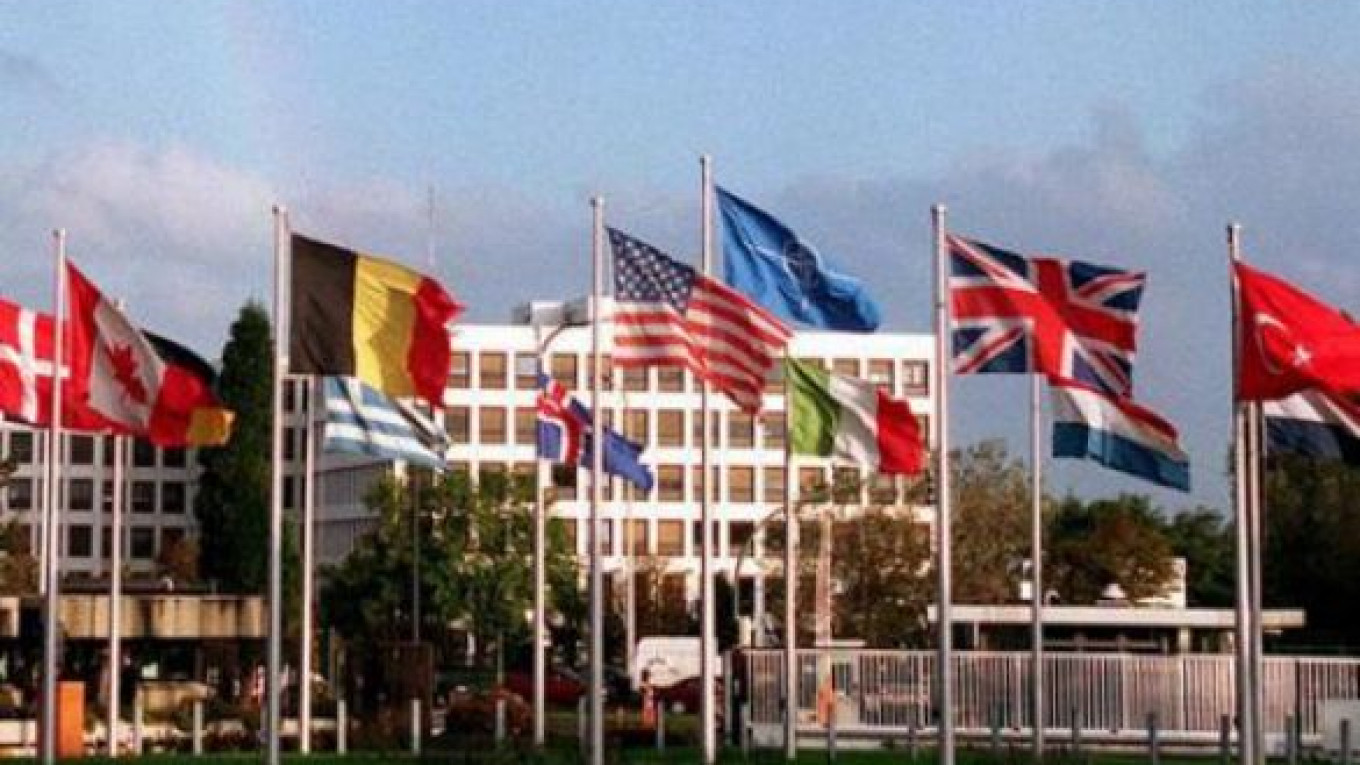NATO and Russia pride themselves on cooperation over Afghanistan and the fight against terrorists and pirates, but a planned logistics hub to transport military hardware from Afghanistan is not taking off.
Moscow and the Western military alliance will conduct a range of exercises this year, including a joint anti-terror drill in the Paris metro, NATO Assistant Secretary General Kolinda Grabar-Kitarovic told a roundtable meeting Wednesday. National media reported in 2011 that Russia and NATO want to test a jointly developed device for screening crowds for hidden explosives in Paris.
Grabar-Kitarovic also pointed out that a direct phone line was established last week between General Knud Bartels, the chairman of NATO's Military Committee, and General Staff head Valery Gerasimov, allowing both sides' military leaders to stay in touch.
The assistant secretary general was speaking via video link from Brussels to a roundtable with defense experts in the alliance's Moscow Information Bureau.
She said NATO's new public diplomacy strategy identifies the partnership with Russia as a priority.
However, roundtable members later confirmed that the planned logistics hub in Ulyanovsk, through which alliance members are meant to fly out military hardware from Afghanistan, has yet to start in full.
The government offered NATO use of the airport in the Volga River city as a hub last year against fierce resistance from Communist and nationalist opposition activists, who object to letting NATO members use facilities in the country's heartland. Ulyanovsk is the birthplace of former Soviet leader Vladimir Lenin.
But no alliance member has announced that it will use this option for troop withdrawal from Afghanistan, which is to be completed by next year.
The only cargo that has been sent through Ulyanovsk so far is a number of containers for the British contingent that were sent from Camp Bastion in Afghanistan to Britain in December. That shipment has been described as a "trial" by both NATO and Russian officials.
A senior diplomat from a NATO country told the panel that the route was considered too expensive. Experts from his defense ministry have calculated that shipping a container from Afghanistan through Ulyanovsk costs 50,000 euros, while sending it via the Termez airbase in Uzbekistan costs only 30,000 euros, the diplomat told The Moscow Times, asking not to be identified because he was not authorized to speak to the media.
But Yury Gorlach, a deputy director in the Foreign Ministry's European department, argued that Ulyanovsk was worth the extra cost because it was safer. "When you send valuable cargo from Afghanistan, Ulyanovsk is an option," he said.
The senior NATO member diplomat suggested that alliance countries are reluctant not just because of financial reasons. "They do not like the idea that Russian intelligence can take a close look at what they send back from Afghanistan," he said.
Among other cooperation proposals that have yet to bear fruit is a NATO proposal to help Russia to destroy or recycle its sizable ammunition reserves.
That proposal is currently undergoing a feasibility study, according to NATO officials.
The roundtable marked the 12th anniversary of the setting up of NATO's Moscow Information Bureau.
Contact the author at [email protected]
Related articles:
A Message from The Moscow Times:
Dear readers,
We are facing unprecedented challenges. Russia's Prosecutor General's Office has designated The Moscow Times as an "undesirable" organization, criminalizing our work and putting our staff at risk of prosecution. This follows our earlier unjust labeling as a "foreign agent."
These actions are direct attempts to silence independent journalism in Russia. The authorities claim our work "discredits the decisions of the Russian leadership." We see things differently: we strive to provide accurate, unbiased reporting on Russia.
We, the journalists of The Moscow Times, refuse to be silenced. But to continue our work, we need your help.
Your support, no matter how small, makes a world of difference. If you can, please support us monthly starting from just $2. It's quick to set up, and every contribution makes a significant impact.
By supporting The Moscow Times, you're defending open, independent journalism in the face of repression. Thank you for standing with us.
Remind me later.







